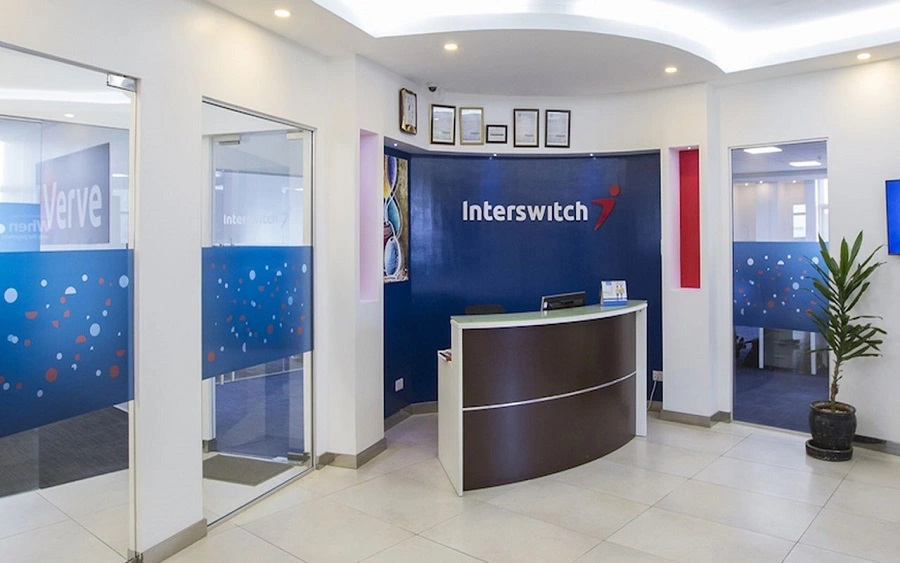Technology
Interswitch, Others Explore Future of Payments and Fraud

The Nigerian payments ecosystem has undergone impressive evolution over the years; transitioning from a cash-based system to electronic payment systems that have deepened financial inclusion and spurred the country’s economic growth. Inarguably, there remains a lot of ground to cover, but one cannot ignore the progress that has been recorded over the past two decades.
Given the introduction of electronic payment systems, businesses have found newer ways to sell to consumers, while consumers, on the other hand, can purchase goods and services from the comfort of their homes or other locations.
The evolution of the payment scene in Nigeria, and its prospects for the future were the core focus of discussions at the recent Business Day conference themed Future of Payments and Fraud Conference 2022.
Attendees discussed the related advantages of the spread of e-payments in Nigeria; the role of players and regulators in the ecosystem, and the ongoing efforts to tame the vulnerabilities that accompany the uptake of e-payments.
Delivering a keynote speech on behalf of the Managing Director, Payment Processing and Switching (Interswitch Purepay), Akeem Lawal; the Group Head Product and Innovation, Interswitch Purepay, Olufemi Davies, highlighted the role that Interswitch, Africa’s leading integrated payments and digital commerce company is playing to ensure that it remains ahead of the curve.
In his address, Davies noted that the growth of the ecosystem and the boost of the present infrastructure were dependent on the collaboration of fintech companies. He added that as a major player and a pioneer in the payment ecosystem in Nigeria, Interswitch, from time to time, sought avenues to partner with other players in the payment system, including legacy institutions to tackle unfolding challenges.
He also identified steps Interswitch has taken through the years to ensure that its systems are fortified to enhance the e-payment experience for consumers and forestall issues of fraud.
Giving practical examples, he shared how the drive for innovation led the technology giant to adopt the EMV 3D technology – an advanced system that enables consumers to self-authenticate with their card issuers when making online purchases without their cards present.
In the same vein, the company also introduced the Biometrics feature on Point of Sale (PoS) terminals and Automated Teller Machines (ATMs), which give consumers more personalized options for seamless transactions. Davies said in each case, the innovations were either tailor-made or adapted for Africans, as most payment solutions had a more global appeal without considering the peculiar challenges of Africa.
For this reason, Davies submitted, solutions to the challenges faced by Africans should ideally be developed within the continent by those who face these challenges. He also added that policymakers need to develop tailored policies to support growth on the continent.
Wrapping up, Davies called on players to extend hands across the competitive divide to ensure that the doubts and fears of consumers were put to rest, adding that the consideration of fraud determines how Nigerians and Africans at large interact with digital payments.
Technology
Leticia Otomewo Becomes Secure Electronic Technology’s Acting Secretary

By Aduragbemi Omiyale
One of the players in the Nigerian gaming industry, Secure Electronic Technology (SET) Plc, has appointed Ms Leticia Otomewo as its acting secretary.
This followed the expiration of the company’s service contract with the former occupier of the seat, Ms Irene Attoe, on January 31, 2026.
A statement to the Nigerian Exchange (NGX) Limited on Thursday said Ms Otomewo would remain the organisation’s scribe in an acting capacity, pending the ratification and appointment of a substantive company secretary at the next board meeting.
She was described in the notice signed by the Managing Director of the firm, Mr Oyeyemi Olusoji, as “a results-driven executive with 22 years of experience in driving business growth, leading high-performing teams, and delivering innovative solutions.”
The acting secretary is also said to be “a collaborative leader with a passion for mentoring and developing talent.”
“The company assures the investing public that all Company Secretariat responsibilities and regulatory obligations will continue to be discharged in full compliance with the Companies and Allied Matters Act, applicable regulations, and the Nigerian Exchange Limited Listing Rules,” the disclosure assured.
Meanwhile, the board thanked Ms Attoe “for professionalism and contributions to the Company during the period of her engagement and wishes her well in her future endeavours.”
Technology
Russia Blocks WhatsApp Messaging Service

By Adedapo Adesanya
The Russian government on Thursday confirmed it has blocked the WhatsApp messaging service, as it moves to further control information flow in the country.
It urged Russians to use a new state-backed platform called Max instead of the Meta-owned service.
WhatsApp issued a statement earlier saying Russia had attempted to “fully block” its messaging service in the country to force people toward Max, which it described as a “surveillance app.”
“Today the Russian government attempted to fully block WhatsApp in an effort to drive people to a state-owned surveillance app,” WhatsApp posted on social media platform X.
“Trying to isolate over 100 million users from private and secure communication is a backwards step and can only lead to less safety for people in Russia,” it said, adding: “We continue to do everything we can to keep users connected.”
Russia’s latest move against social media platforms and messaging services like WhatsApp, Signal and Telegram comes amid a wider attempt to drive users toward domestic and more easily controlled and monitored services, such as Max.
Russia’s telecoms watchdog, Roskomnadzor, has accused messaging apps Telegram and WhatsApp of failing to comply with Russian legislation requiring companies to store Russian users’ data inside the country, and of failing to introduce measures to stop their platforms from being used for allegedly criminal or terrorist purposes.
It has used this as a basis for slowing down or blocking their operations, with restrictions coming into force since last year.
For Telegram, it may be next, but so far the Russian government has been admittedly slowing down its operations “due to the fact that the company isn’t complying with the requirements of Russian legislation.”
The chat service, founded by Russian developers but headquartered in Dubai, has been a principal target for Roskomnadzor’s scrutiny and increasing restrictions, with users reporting sluggish performance on the app since January.
Technology
Nigerian AI Startup Decide Ranks Fourth Globally for Spreadsheet Accuracy

By Adedapo Adesanya
Nigerian startup, Decide, has emerged as the fourth most accurate Artificial Intelligence (AI) agent for spreadsheet tasks globally, according to results from SpreadsheetBench, a widely referenced benchmark for evaluating AI performance on real-world spreadsheet problems.
According to the founder, Mr Abiodun Adetona, the ranking places Decide alongside well-funded global AI startups, including Microsoft, OpenAI, and Anthropic.
Mr Adetona, an ex-Flutterwave developer, also revealed that Decide now has over 3,000 users, including some who are paying customers, a signal to the ability of the startup to scale in the near future.
SpreadsheetBench is a comprehensive evaluation framework designed to push Large Language Models (LLMs) to their limits in understanding and manipulating spreadsheet data. While many benchmarks focus on simple table QA, SpreadsheetBench treats a spreadsheet as a complex ecosystem involving spatial layouts, formulas, and multi-step reasoning. So far, only three agents rank higher than Decide, namely Nobie Agent, Shortcut.ai, and Qingqiu Agent.
Mr Adetona said SpreadsheetBench measures how well AI agents can handle practical spreadsheet tasks such as writing formulas, cleaning messy data, working across multiple sheets, and reasoning through complex Excel workflows. Decide recorded an 82.5% accuracy score, solving 330 out of 400 verified tasks.
“The result reflects sustained investment in applied research, product iteration, and learning from real-world spreadsheet workloads across a wide range of use cases,” Mr Adetona told Business Post.
For Mr Adetona, who built Decide out of frustration with how much time professionals spend manually cleaning data, debugging formulas, and moving between sheets, “This milestone highlights how focused engineering and domain-specific AI development can deliver frontier-level performance outside of large research organisations. By concentrating on practical business data problems and building systems grounded in real user environments, we believe smaller teams can contribute meaningfully to advancing applied AI.”
“For Decide, this is a foundation for continued progress in intelligent spreadsheet and analytics automation,” he added.
-

 Feature/OPED6 years ago
Feature/OPED6 years agoDavos was Different this year
-
Travel/Tourism10 years ago
Lagos Seals Western Lodge Hotel In Ikorodu
-

 Showbiz3 years ago
Showbiz3 years agoEstranged Lover Releases Videos of Empress Njamah Bathing
-

 Banking8 years ago
Banking8 years agoSort Codes of GTBank Branches in Nigeria
-

 Economy3 years ago
Economy3 years agoSubsidy Removal: CNG at N130 Per Litre Cheaper Than Petrol—IPMAN
-

 Banking3 years ago
Banking3 years agoSort Codes of UBA Branches in Nigeria
-

 Banking3 years ago
Banking3 years agoFirst Bank Announces Planned Downtime
-

 Sports3 years ago
Sports3 years agoHighest Paid Nigerian Footballer – How Much Do Nigerian Footballers Earn




















